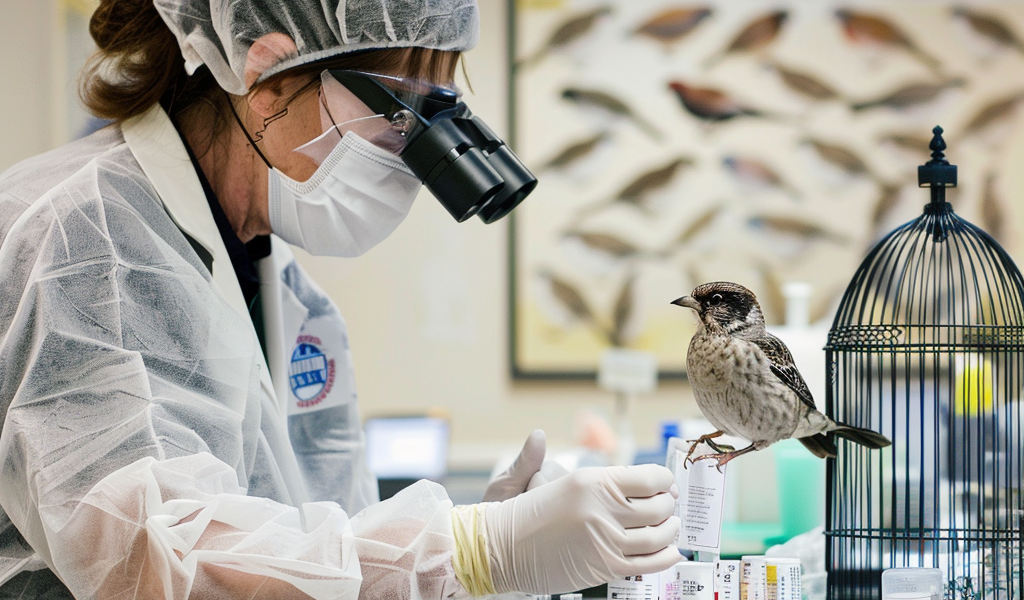An investigation into a suspected cluster of human cases of avian influenza, commonly known as bird flu, in Missouri has revealed that there has been no evidence of human-to-human transmission. This finding is particularly reassuring in light of the increasing number of human cases being reported across various regions.
The Missouri health authorities have been closely monitoring the situation after reports emerged regarding potential human infections linked to bird flu. The disease, primarily affecting birds, can occasionally spill over into humans, raising concerns about its transmissibility and the potential for outbreaks.
Health officials conducted extensive testing and contact tracing to determine the nature of the cases. Their investigation focused on individuals who had close contact with infected birds, as well as those who may have been exposed in environments where the virus is known to thrive.
Despite the heightened vigilance and the emergence of new cases, the lack of evidence supporting human-to-human transmission is a significant relief for public health officials. It indicates that the virus has not adapted to spread easily between humans, which is a critical factor in preventing larger outbreaks.
Experts emphasize the importance of continued surveillance and precautionary measures to ensure that any potential risks are swiftly addressed. The Centers for Disease Control and Prevention (CDC) and other health organizations are actively monitoring the situation, providing guidance on how to minimize exposure to the virus.
In addition to the Missouri investigation, there are ongoing efforts across the nation to track avian influenza cases in both birds and humans. The CDC has been working with state health departments to enhance reporting systems and improve response strategies.
As part of these efforts, health officials are educating the public about the signs and symptoms of bird flu, encouraging anyone who may have been exposed to seek medical attention. Symptoms in humans can range from mild respiratory issues to more severe complications, depending on the strain of the virus.
While the current situation in Missouri is under control, health experts are urging vigilance. The risk of avian influenza remains, particularly among those who work with poultry or who have close contact with birds. Recommendations include practicing good hygiene, avoiding contact with sick birds, and reporting any unusual bird deaths to local authorities.
The emergence of new human cases of bird flu in different parts of the country has raised questions about the effectiveness of current preventive measures. However, the absence of human-to-human transmission in Missouri serves as a reminder that with appropriate precautions, the risks can be managed.
As the investigation continues, health authorities are committed to keeping the public informed about any developments related to avian influenza. Regular updates will be provided to ensure that communities are aware of the situation and can take necessary precautions.
In light of the ongoing concerns regarding infectious diseases, public health agencies are also focusing on enhancing their preparedness for potential outbreaks. This includes improving laboratory capabilities, increasing funding for research, and fostering collaborations among various stakeholders.
The Missouri case underscores the need for a proactive approach in dealing with zoonotic diseases—those that can be transmitted from animals to humans. With the potential for new strains to emerge, it is crucial for health officials to remain vigilant and ready to respond swiftly to any changes in the epidemiological landscape.
As the situation evolves, the health community will continue to closely monitor avian influenza cases and provide guidance to mitigate risks. Public awareness and education will play a vital role in ensuring that individuals understand the importance of reporting suspicious cases and following health recommendations.
For now, the investigation into the suspected cluster of human cases in Missouri serves as a reminder of the complexities involved in managing infectious diseases. The collaboration between health authorities, researchers, and the public will be essential in maintaining safety and preventing the spread of avian influenza.
As the flu season approaches, the focus will also shift towards vaccination efforts and other preventive measures to protect vulnerable populations. The health community is prepared to adapt its strategies based on emerging data and trends related to both avian and seasonal influenza.
In summary, while the situation in Missouri appears stable, the ongoing investigation highlights the importance of vigilance and preparedness in the face of potential health threats. Public health officials are dedicated to ensuring the safety and well-being of communities as they navigate the complexities of zoonotic diseases.





